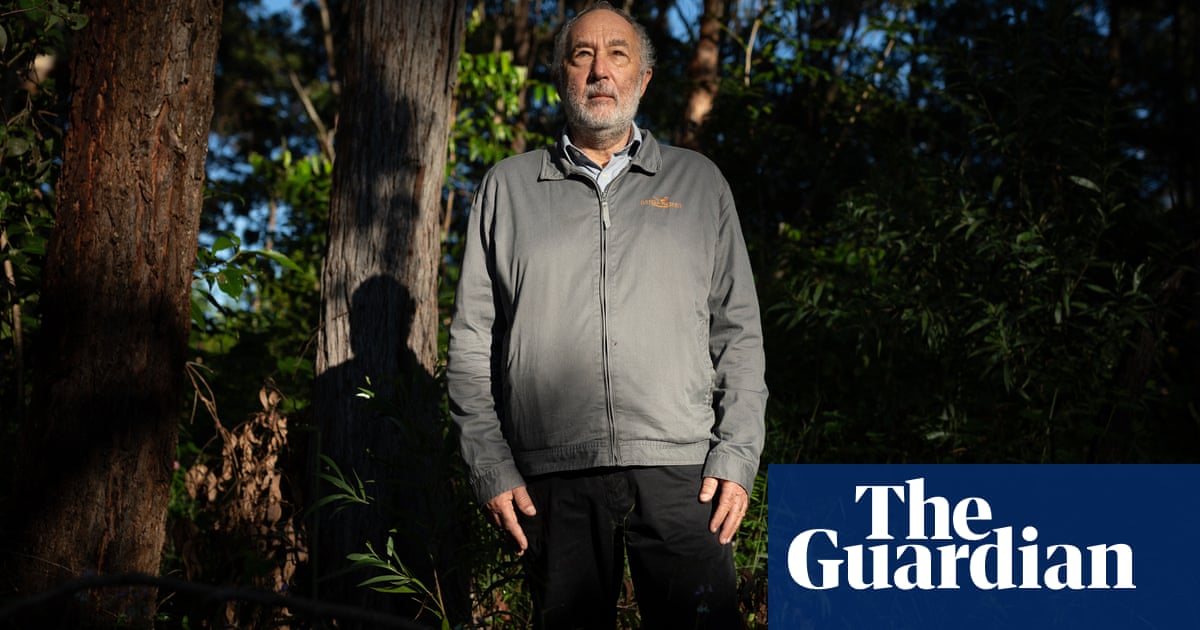A former magistrate and one of Australia’s most experienced scientists have launched an extraordinary attack on theNew South Walesgovernment’s logging agency, describing it as effectively a “criminal organisation” that should be shut down after a string of court convictions.
Prof David Heilpern, a NSW magistrate between 1998 and 2020 and now the dean of law at Southern Cross University, said the state’s Forestry Corporation should be “disbanded” as it was was no longer fit for purpose.
The corporation has been convicted of more than a dozen environmental offences, including a judgment in the land and environment court last year that found the agency was likely to reoffend and had poor prospects of rehabilitation.
“If they were a bikie group they would be a criminal organisation. Anyone with that number of convictions the vernacular is to call them a criminal organisation,” Heilpern said.
“Are they a criminal organisation within the meaning of the legislation? The answer is no. However, it’s clear that it’s unprecedented for any statutory organisation to have that number of serious offences over matters of environmental importance.”
Sign up for Guardian Australia’s breaking news email
A NSW Forestry Corporation spokesperson said Heilpern’s suggestion that the corporation be compared to a bikie gang was “ridiculous”. “Forestry Corporation will not respond to this analogy,” they said.
“Where breaches have occurred, they have been unintentional and without malice. Forestry Corporation deeply regrets any breaches and has heavily invested in its compliance systems and processes to minimise the room for human or technological errors.”
Heilpern’s comments follow a judgment in the NSW land and environment court last year that fined the Forestry Corporation $360,000 after it failed to accurately map two environmentally significant areas in the Yambulla state forest.
The court found the forest agency had logged 53 eucalyptus trees in one of these areas, causing actual harm to the trees and affecting the refuge of native fauna and flora species after the black summer bushfires.
The judgment also found the logging of the trees had caused potential harm to three threatened bird species that lived in the forest.
In her judgment, Justice Rachel Pepper noted the Forestry Corporation’s “lengthy record of prior convictions for environmental offences” including polluting a forest waterway, inadequate threatened species surveys, unlawful harvesting of hollow-bearing trees, and harvesting in koala and rainforest habitat exclusion zones.
Pepper accepted submissions from the state’s Environment Protection Authority that the forest agency was likely to reoffend and did not have good prospects of rehabilitation.
Heilpern said this demonstrated the Forestry Corporation “are not fit for purpose which is to lawfully and in an environmentally sound way manage our forests”.
“They aren’t offences involving failing to cross a t or dot an i. They are offences involving illegal logging of state forest without appropriate levels of environmental protection. It’s completely unprecedented,” he said.
“Whether or not you declare them a criminal organisation, they’re clearly not fit for purpose to manage our forests. They should be disbanded.”
Sign up toClear Air Australia
Adam Morton brings you incisive analysis about the politics and impact of the climate crisis
after newsletter promotion
The Minns government has been under pressure over the future of native forest logging, having committed to establishing a “Great Koala national park” in the state’s north before the 2023 election.
Areas of the park have continued to be logged while community groups and conservationists wait for a decision from the government about the park’s boundaries. The native hardwood forest division of Forestry Corporation has disclosed losses of$72m since 2020-21, including $29m in 2023-24.
The scientist David Lindenmayer, a distinguished professor of ecology and conservation biology at the Australian National University, said: “NSW Forestry Corporation has been prosecuted in the land and environment court repeatedly – what does that tell us about the organisation?
“From any perspective you look at it, this really is a criminal organisation in terms of crimes against the environment, crimes against biodiversity but also crimes against the state’s finances. Because when this organisation conducts these crimes it actually loses money for the state.”
The Forestry Corporation’s spokesperson said logging operations produced 4m tonnes of timber each year and “as you would expect, the vast majority of these operations are fully compliant with the law”. They said the agency often “protects more trees in its operations than required by the regulation”.
A spokesperson for the NSW agriculture minister, Tara Moriarty, said “there are comprehensive regulations in place and the minister expects Forestry Corporation of NSW to comply with them”.
The Greens MLC Sue Higginson criticised the state government for “allowing and defending” the agency to continue to operate.
“For the Forestry Corporation, breaking the law and harming the environment and wildlife has become like a game of charades played under the protection of the state,” she said.
“They get caught, investigated, prosecuted, a criminal conviction, a fine – which the public pays – and they carry on and do it all again.
“There is just no integrity, accountability or justice in this model of operation.”
